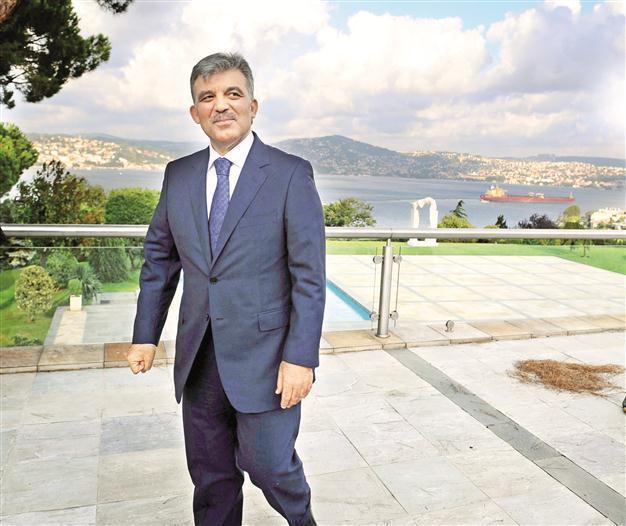AKP in conundrum on president’s term
ANKARA - Hürriyet Daily News

There is an ongoing controversy relating to President Abdullah Gül’s term. AA photo
The government has come out in favor of confirming a seven-year term for President Abdullah Gül, but differing views have emerged on how the tenure should be formally fixed.Some senior Justice and Development Party (AKP) members have said a constitutional amendment is required to end the controversy, but Parliamentary Speaker Cemil Çiçek has said it is up to the legislature to resolve the issue when it addresses a draft bill on presidential elections in the coming days. Others, meanwhile, believe Prime Minister Recep Tayyip Erdoğan will make the final decision.
“If Parliament fails to make a decision on such an important issue, then the Supreme Electoral Board [YSK] will have to sort it out. Will it be right to leave the decision on the top post of the state to the YSK?” Çiçek told daily Bugün newspaper.
He said a provision could be added to the draft law on presidential elections, which Parliament is likely to debate in January. Çiçek had previously suggested that the date of the next presidential election be added to the draft to effectively fix Gül’s term.
Turkey’s next head of state will be elected by a popular vote for the first time under 2007 constitutional reforms. Parliament elected Gül for a single seven-year term on Aug. 28, 2007. Two months later, constitutional amendments introducing a popular vote to elect the president for a five-year, once renewable term, were approved by referendum. The ongoing controversy stems from uncertainty on whether the amendments should be considered retroactive to affect Gül’s mandate.
“There have been some individual statements. Deputy Prime Minister [Bekir] Bozdağ says the term should be seven years. Whether it is seven or five, Parliament is the place to discuss that. Parliament sets the rules. It would be inappropriate for me to reveal my personal opinion,” Çiçek told Bugün.
Burhan Kuzu, the head of the Constitution Conciliation Commission, lent support to Çiçek’s suggestion.
“You cannot reduce the term of someone who has been elected for seven years to five years. The length of the tenure could be added to the presidential election law that we are going to take up at the commission after the budget debates,” Kuzu told the Hürriyet Daily News yesterday.
AKP Deputy Group Chairman Nurettin Canikli had said the previous day that the controversy should be resolved through a constitutional amendment that would require a compromise with the opposition.
The opposition, however, insists that Gül is entitled to a five-year, once renewable term on grounds that constitutional amendments reducing parliamentary terms from five to four years, passed at the same 2007 referendum, had already taken effect.
“The parliamentary elections were held within four years’ time [of the 2007 referendum], and lawmakers did not complain that they had lost a year. The president should act in the same way,” Nationalist Movement Party (MHP) leader Devlet Bahçeli said yesterday. “The decision on whether it’s five or seven years is up to the ruling party. We cannot do anything with 50 deputies.”
“Parliamentary elections were held in four years’ time and similarly, the presidential elections should be held after five years” in 2012, Republican People’s Party (CHP) Chairman Kemal Kılıçdaroğlu also said.
The CHP has frequently said the issue has been deliberately left in limbo to give Erdoğan time to decide whether and when he will run for the presidency, as is expected.
















